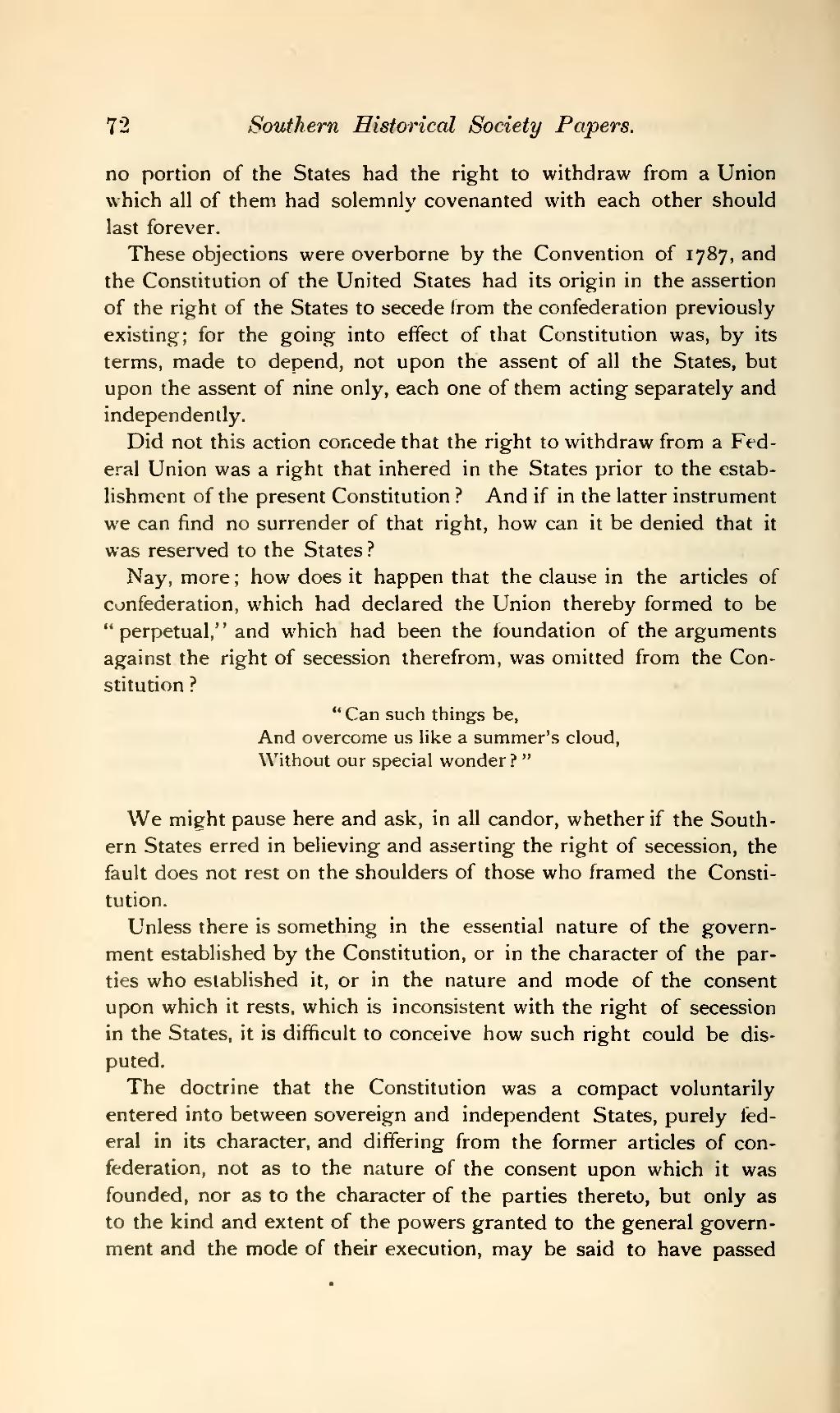72 Southern Historical Society Pajjeos.
no portion of the States had the right to withdraw from a Union which all of them had solemnly covenanted with each other should last forever.
These objections were overborne by the Convention of 1787, and the Constitution of the United States had its origin in the assertion of the right of the States to secede from the confederation previously existing; for the going into effect of that Constitution was, by its terms, made to depend, not upon the assent of all the States, but upon the assent of nine only, each one of them acting separately and independently.
Did not this action concede that the right to withdraw from a Fed- eral Union was a right that inhered in the States prior to the estab- lishment of the present Constitution ? And if in the latter instrument we can find no surrender of that right, how can it be denied that it was reserved to the States ?
Nay, more ; how does it happen that the clause in the articles of confederation, which had declared the Union thereby formed to be " perpetual," and which had been the foundation of the arguments against the right of secession therefrom, was omitted from the Con- stitution ?
"Can such things be, And overcome us like a summer's cloud, Without our special wonder? "
We might pause here and ask, in all candor, whether if the South- ern States erred in believing and asserting the right of secession, the fault does not rest on the shoulders of those who framed the Consti- tution.
Unless there is something in the essential nature of the govern- ment established by the Constitution, or in the character of the par- ties who established it, or in the nature and mode of the consent upon which it rests, which is inconsistent with the right of secession in the States, it is difficult to conceive how such right could be dis- puted.
The doctrine that the Constitution was a compact voluntarily entered into between sovereign and independent States, purely fed- eral in its character, and differing from the former articles of con- federation, not as to the nature of the consent upon which it was founded, nor as to the character of the parties thereto, but only as to the kind and extent of the powers granted to the general govern- ment and the mode of their execution, may be said to have passed
